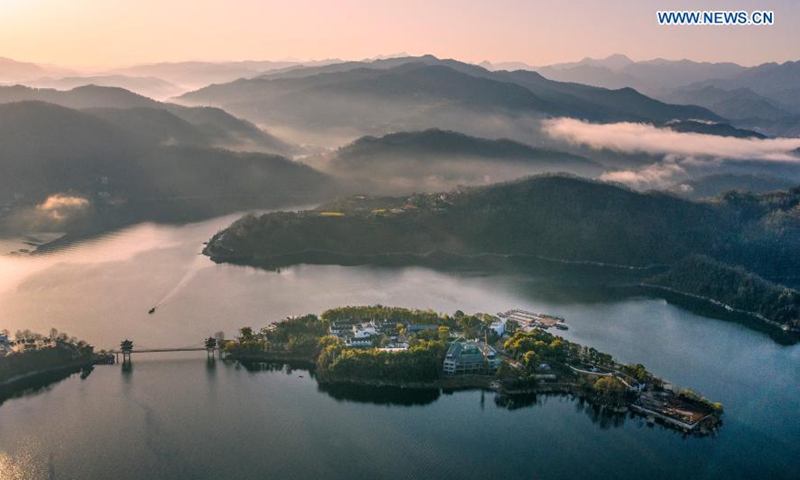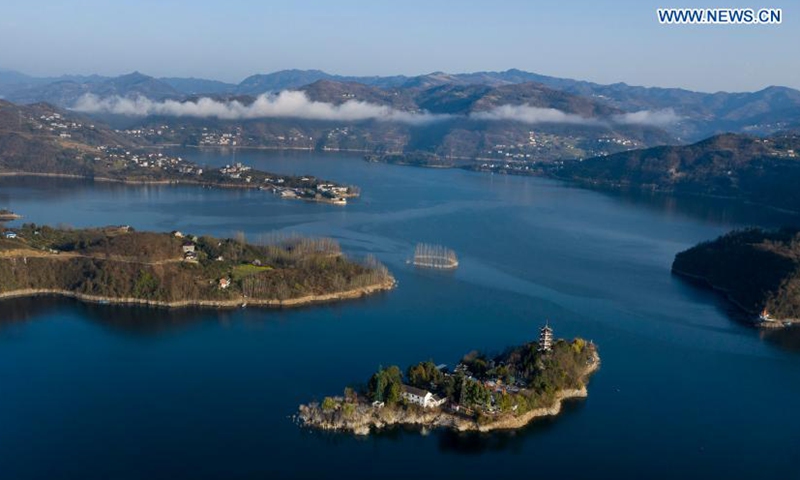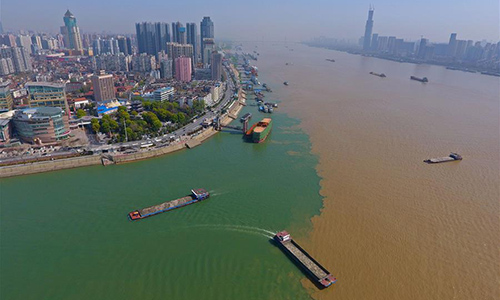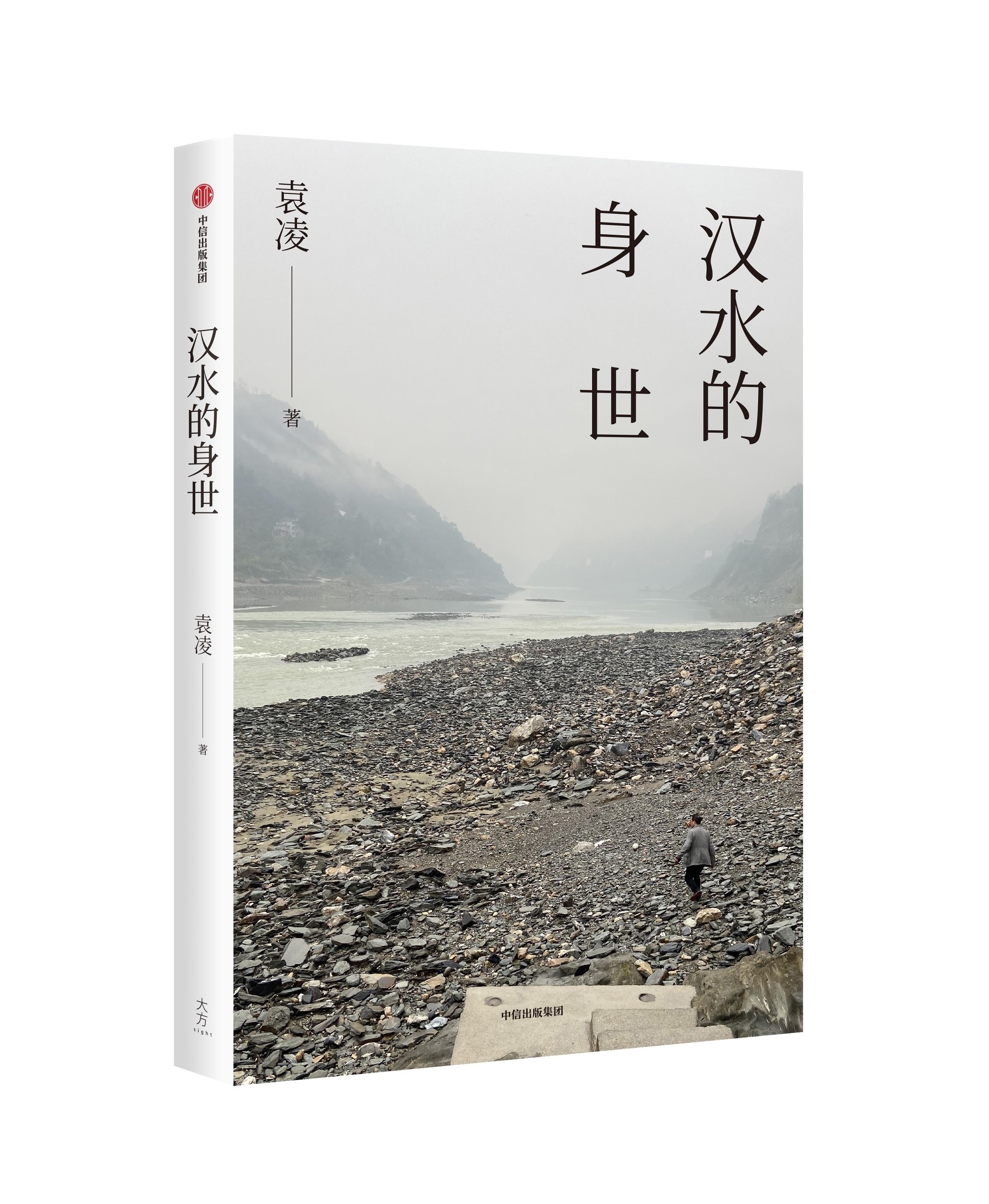
The book of Han Shui de Shen Shi Photo: Courtesy of CITIC Press Group
Writer Yuan Ling's new Chinese nonfiction book Han Shui de Shen Shi (Lit: History of the Hanjiang River) investigates ordinary people's stories connected to the river that originates from Yuan's hometown An Kang, Northwest China's Shaanxi Province.
Yet, the writer is reluctant about the "history" part of the title. He told the Global Times that "fate" or "dilemma" would be better suited to describe what he is trying to achieve with the book.
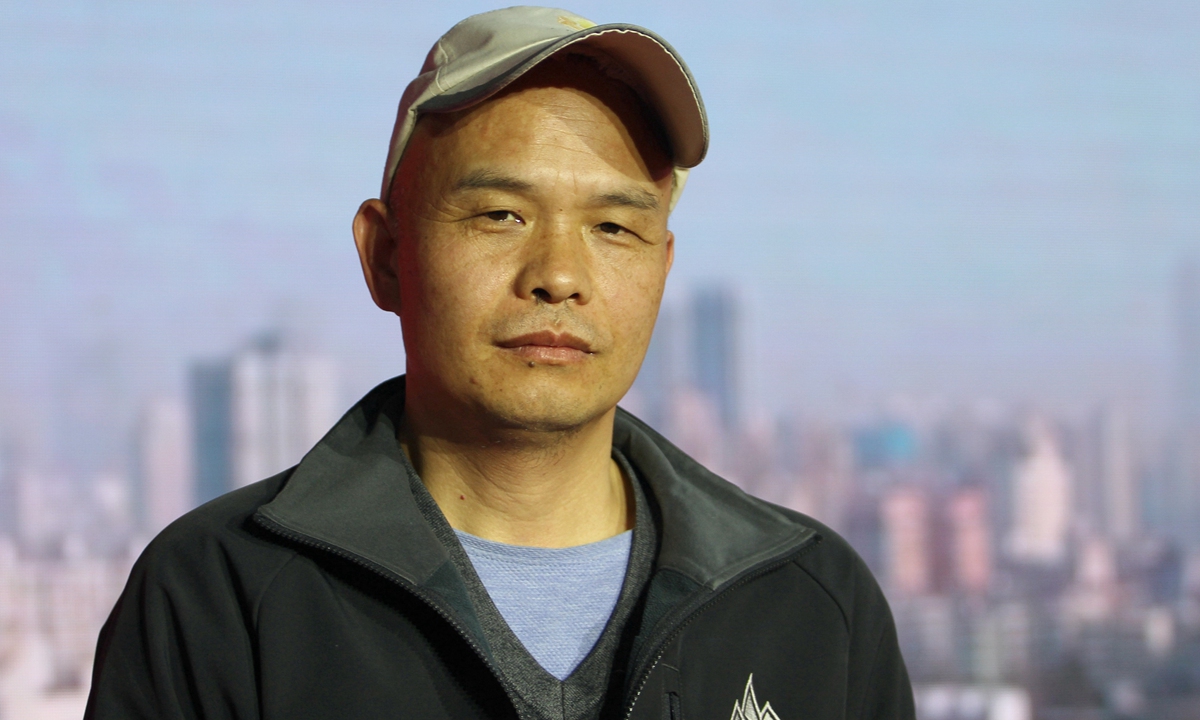
Author Yuan Ling Photo: Courtesy of CITIC Press Group
Real issues
Spending eight years writing the book before finally put his pen down in 2022, Yuan has filled his book with an earnest assortment of historical references, data, on-site interviews, photographs and document studies that paint a comprehensive picture of the Hanjiang River.
Called Cang Lang River in ancient times, the Hanjiang River is a 1,577-kilometer river that flows from Shaanxi Province into the Yangtze River near Hankou, Central China's Hubei Province.
The abundance of information about the river was "intimidating," but the sheer scope of the undertaking was not able to dampen Yuan's passion for the project.
"This book is not about how I feel about the Hanjiang River, maybe a little… I write people's stories to reflect how it has changed and depict its current situation," Yuan told the Global Times.
Fishermen, mariners, irrigationists, environmental volunteers and migrants who live along the river number among the people that Yuan writes about. His book mentions roughly 70 to 80 people who mainly provided quotes or stories about the river.
Their stories are scattered throughout the book's five chapters, delineating the changing fate of the Hanjiang River against the backdrop of the South-to-North Water Diversion Project, a mega-project completed in 2014 that aimed to bring water from the southern regions of China to the dry north.
The Hanjiang River, a major tributary of the Yangtze River, was fated to take part in the project, Yuan notes in the book.
"Every time I turn on the tap in Beijing, I am reminded that 70 percent of the city's water comes from the Hanjiang River," Yuan told the Global Times.
"This book is not just about nostalgia, but real issues."
The Hanjiang River slakes the thirst of 60 million people living in the North China Plains, including the capital Beijing and its neighbor Tianjin.
The mega project was game changing for Northern Chinese cities' urbanization, but nonetheless left people who dwell along the river facing a dilemma. In total, about 800,000 people who lived along the banks of the river had to migrate to other regions.
In Chapter Two Migration and Return, Yuan tells the story of Hanjia village, an island village surrounded by the river in Shiyan, Hubei Province. The nearly 500 people in the village have been relocated to places like Suizhou, Hubei Province and Xuchang, Central China's Henan Province since 2009.
Yuan visited migrants like Han Zhengyu, who regretted leaving behind the toys his late father made. Another villager, Han Tianhe, showed Yuan the poems he wrote that were inspired by the Hanjiang River. Such details remind the readers of the river's close ties to humanity.
"If people in the north were receivers, then migrants were givers who sacrificed. They lost not only the privilege to use the river waters, but also their homes," Yuan said.
Many of his interviewees were part of the "grandfather" generation of the island.
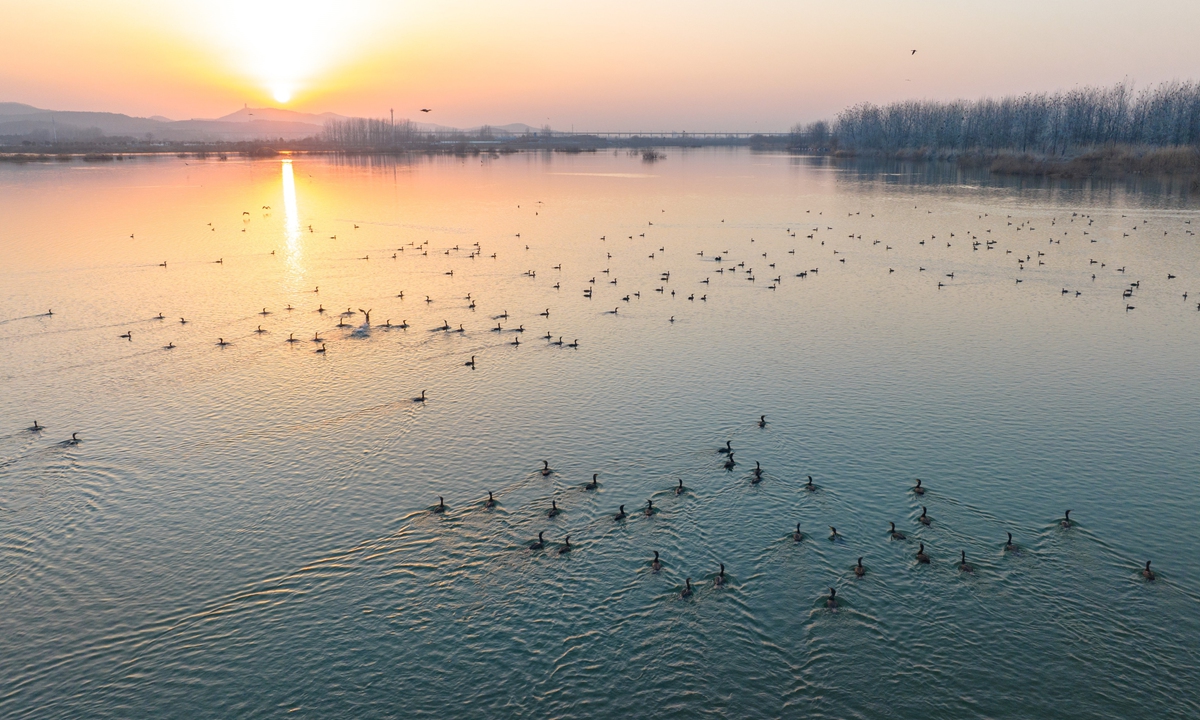
A photo of the Hanjiang River Photo: IC
'As good as water'
Given the prominent position of the Yangtze and Yellow rivers, Yuan told the Global Times that he sees the "clear and meek" Hanjiang River as the "third" mother river of China.
"Compared to the deep rooted Confucian civilization along the Yellow River, the Hanjiang River is indeed a Taoist world," he writes in his book.
"As good as water" is a Chinese idiom from the Tao Te Ching, the guidebook of Chinese Taoism. It praises water's selfless virtue in benefitting all things without asking for anything back.
Although Yuan does not quote the phrase in his book, he does acknowledge the Hanjiang River's generosity. He told the Global Times that he felt he had to "do something" for the river because it is "a story of the entire nation."
Nine years ago, Yuan published a 20,000-word report called Prayer of the Hanjiang River. He explained that the article was the starting point of the 2022 work.
In the other four chapters of the book, he writes about the history of the river, the shipping industry, fishing industry and changing ecologic conditions along the river.
He told the Global Times that he felt it was easy to write about the shipping industry, but he struggled a bit at the beginning to find a balance between including people's experiences and cold hard facts.
"I wrote it as a life of flesh and blood," he said, emphasizing that he tried to leave "sentiment" out of the work.
Before his turn as a nonfiction writer, Yuan was a journalist known for writing top-notch feature articles. His journalist background left him with a unique style of being able to use facts to create aesthetic tension in his writing.
Prior to the new book, he had published several other notable works on subjects such as the Wenchuan Earthquake, mine workers and left-behind children. Although they all took different approaches, these works were about marginal social groups and ordinary people. Yuan noted that as a writer, he likes to try and put himself in other people's shoes and experience what they have experienced.
"My nonfiction works are always 'people-oriented,'" he said.
The writer said that he also has two new books on the way in 2023. The one he is currently working on is nonfiction and is about grassroot efforts in urban areas.
"I never wanted to use words to stimulate anyone; literature is for safeguarding people's hearts," added Yuan.
